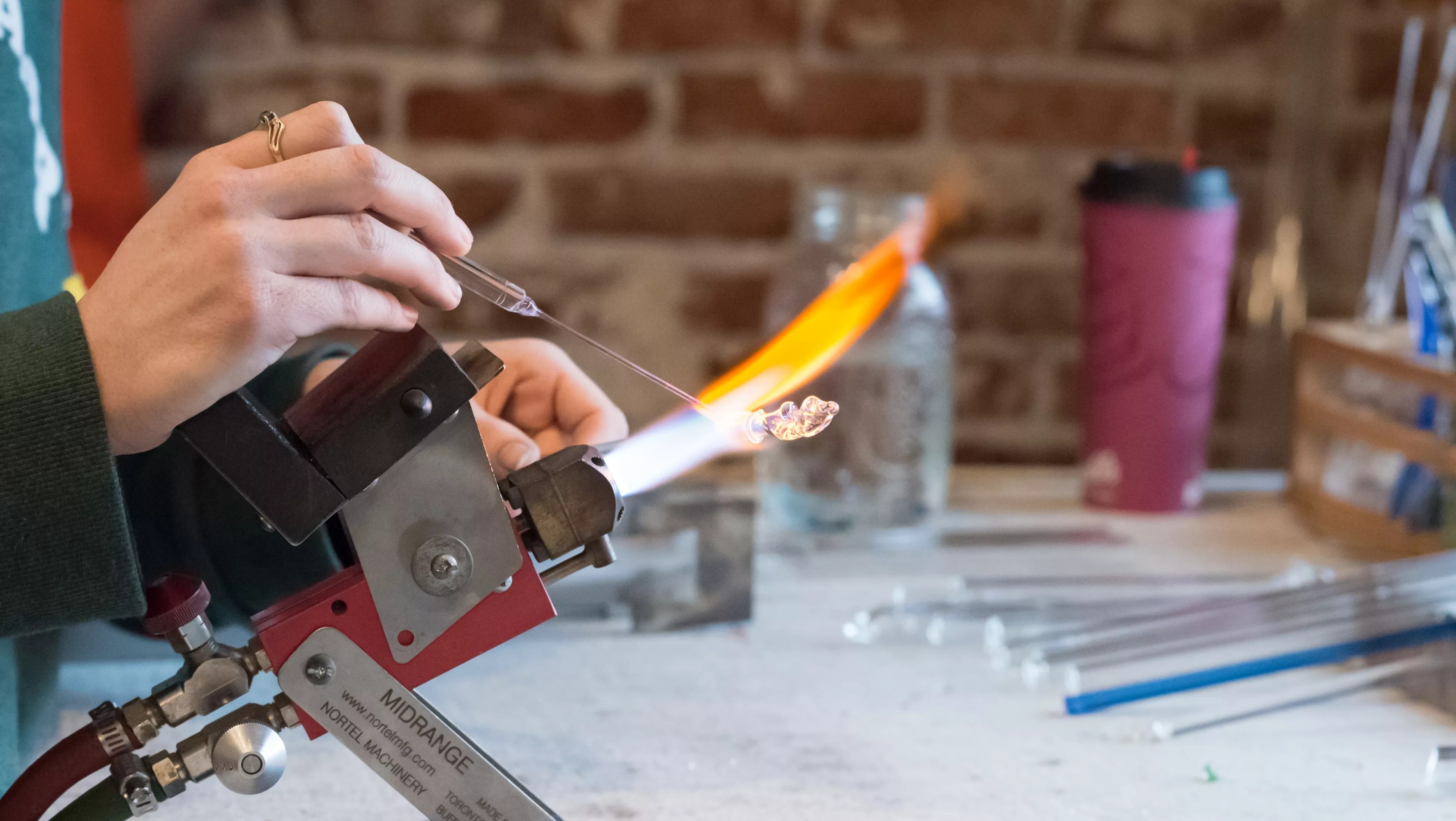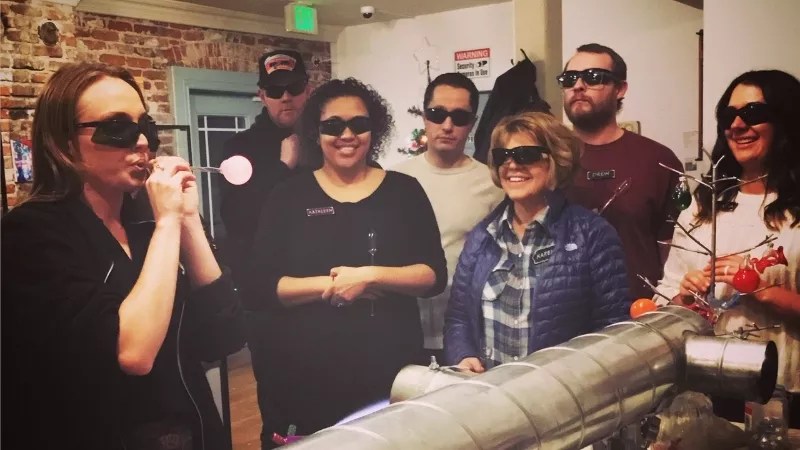
Courtesy of Classy Glass

Audio By Carbonatix
Insurance companies have a well-earned reputation for creativity when coming up with reasons to deny paying off policies. But one of the rationales used by the Cincinnati Insurance Company to reject a claim by Classy Glass, a Wisconsin-based company that operated the now-shuttered Denver Glass Academy, stands out. The firm’s refusal to pay was based in part on defining COVID-19 as a “pollutant.”
“There was quite a bit of shock there,” says Levi Kellogg, co-owner of Classy Glass, which has filed a lawsuit against the Cincinnati Insurance Company and two affiliates, the Cincinnati Casualty Company and the Cincinnati Indemnity Company. “It felt like what they were doing was finding any way they could to weasel out.”
The complaint, filed on April 2, translates this argument into legalese. One passage states: “Quite clearly, the Cincinnati defendants are trying to avoid paying for losses arising out of an insured risk by attempting to add an exclusion to the insurance policy that does not exist.”
The response from Cincinnati Insurance: “We respect the rights of all parties to have their issues heard and resolved in a court of law. For that reason, we do not comment on pending litigation.” However, the company spokesperson adds, “Cincinnati Insurance remains committed to doing our part to support the families and businesses in our agents’ communities, helping them to proactively manage risks and promptly paying covered claims.”
Shutdown orders related to the pandemic were issued in many parts of the country in March 2020, including Wisconsin and Colorado. As a result, Classy Glass closed three outlets: Class Glass and the Madison Glass Academy in Wisconsin, and the Denver Glass Academy at 1556 South Broadway. That location employed an instructor and an assistant who taught the art of glass-blowing, Kellogg says; it also had a small retail component.
By June, many businesses beyond those deemed essential had started reopening. But health-order requirements regarding mask use and physical distancing made reviving the Denver Glass Academy impossible, Kellogg says. “A new student working with a live flame with a teacher six feet away doesn’t seem like the safest option,” he points out.
The business has still not reopened, though it could do so in a new location in the future, Kellogg notes.

Participants and observers of a Classy Glass instructional session.
Courtesy of Classy Glass
In the meantime, according to the lawsuit, Classy Glass sent the Cincinnati Insurance Company a $25,000 claim for each of the three businesses – only a fraction of the $500,000 in overall losses the document cites – because “Government imposed shutdowns are a covered loss under the Insurance Policy.” The complaint maintains that the company did not investigate the filing as requested and eventually declined to pay up, in part because of its definition of COVID-19 as a pollutant, which Classy Glass’s policy listed as an exclusion.
The suit uses the policy’s pollutant section to argue against the logic of this assertion. Here’s an excerpt:
Pollutants: Discharge, dispersal, seepage, migration, release, escape or emission of “pollutants” unless the discharge, dispersal, seepage, migration, release, escape or emission is itself caused by any of the “specified cause of loss.” But if the discharge, dispersal, seepage, migration, release, escape or emission of “pollutants” results in a “specified cause of loss,” we will pay for the “loss” caused by that “specified cause of loss.”
The Insurance Policy further defines pollutants as:
“Pollutants” means any solid, liquid, gaseous or thermal irritant or contaminant, including smoke, vapor, soot, fumes, acids, alkalis, asbestos, chemicals, petroleum, petroleum products and petroleum by-products, and waste. Waste includes materials to be recycled, reconditioned or reclaimed. “Pollutants” include but are not limited to substances which are generally recognized in industry or government to be harmful or toxic to persons, property or the environment regardless of whether injury or damage is caused directly or indirectly by the “pollutants” and whether:
a. You are regularly or otherwise engaged in activities which taint or degrade the environment; or
b. You use, generate or produce the “pollutant.”
The suit claims that COVID-19 was lumped into the pollutant category because “the Insurance Policy contains absolutely no pandemic and/or virus exclusion,” even though “pandemic and/or virus exclusions exist in many business interruption policies issued in the United States.” Such clauses arose in the wake of the H1N1, or swine flu, threat that arose in the early 2000s, Kellogg notes.
The non-payment “constitutes a breach of contract by the Cincinnati defendants,” the complaint contends. Demands include the original $75,000 request, attorneys’ fees and “punitive damages as a result of the insurance bad faith claims as provided for by law and in an amount to be determined by the finder of fact.”
Kellogg still finds it hard to believe that the insurance company is choosing to go through the expensive litigation process rather than pony up for three relatively small claims. “That’s not a sizable payout for an insurance company,” he says. “For them to be so bullish on their opinion is very, very frustrating.”
Click to read Classy Glass v. The Cincinnati Insurance Company, et al.